
IMO
There are numerous organizations with the abbreviation "IMO," but assuming you are referring to the International Maritime Organization (IMO), here's a detailed overview:
International Maritime Organization (IMO)
The International Maritime Organization, often abbreviated as IMO, is a specialized agency of the United Nations responsible for regulating shipping. The IMO was established in 1948 and came into full force in 1959. Its headquarters are located in London, United Kingdom.
Mission and Objectives
The IMO's primary mission is to create a regulatory framework for the shipping industry that is fair, effective, universally adopted, and universally implemented. The organization focuses on several key objectives:
- Safety and Security: Establishing international safety regulations to ensure the security of life at sea.
- Environmental Protection: Setting standards to minimize the environmental impact of shipping activities.
- Legal Matters: Developing international maritime law to ensure efficient and equitable shipping practices.
- Technical Cooperation: Providing technical assistance and capacity-building programs, especially for developing countries.
- Efficiency and Facilitation: Streamlining procedures for international shipping to make maritime transport more efficient and cost-effective.
Key Conventions and Regulations
The IMO is known for several important international treaties and conventions, such as:
- SOLAS (Safety of Life at Sea): One of the most important treaties focusing on ship safety.
- MARPOL (Marine Pollution): International regulations aimed at preventing pollution from ships.
- COLREGs (Collision Regulations): Regulations for preventing collisions at sea.
- STCW (Standards of Training, Certification, and Watchkeeping for Seafarers): Setting qualification standards for seafarers.
- IMDG Code (International Maritime Dangerous Goods Code): Regulations for the safe transport of hazardous materials and dangerous goods.
Structure and Governance
The IMO consists of an Assembly, a Council, and five main Committees:
- Assembly: The highest governing body, composed of all Member States, which meets every two years.
- Council: Acts as the executive organ and is responsible for ensuring the functioning of the IMO.
- Committees:
- Maritime Safety Committee (MSC)
- Marine Environment Protection Committee (MEPC)
- Legal Committee
- Technical Cooperation Committee
- Facilitation Committee
Membership
The IMO has a wide membership, with around 174 Member States and three Associate Members as of 2023. These members are primarily countries with maritime interests.
Achievements and Impact
The IMO has made significant contributions to maritime safety and environmental protection:
- Reduction in Maritime Accidents: Implementation of rigorous safety standards has led to a marked decrease in maritime accidents.
- Mitigating Environmental Impact: Introduction of cleaner fuel regulations and restrictions on emissions has reduced the environmental impact of the maritime industry.
- Global Standards: The establishment of universally recognized standards has leveled the playing field, fostering fair competition and consistency across the global maritime industry.
If you meant another organization by "IMO company," please provide more context, and I’d be happy to share information accordingly.
- Phone: + 44 (0)20 7735 7611
- Web: https://www.imo.org/
IMO News
IMO Secretary-General Welcomes MLC 2006

IMO Secretary-General Koji Sekimizu today welcomed the entry into force of the Maritime Labor Convention (MLC 2006), adopted by the International Labor Organization (ILO), a sister UN agency to IMO. “The entry into force of the MLC convention marks significant progress in the recognition of seafarers’ roles and the need to safeguard their well-being and their working conditions. This is a truly important landmark for seafarers; and for shipping, on which the global economy relies,” Mr.
IMO Sec-Gen Up North in NSR Icebreaker
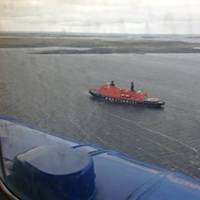
Koji Sekimizu, Secretary General of IMO is aboard the Russian icebreaker '50 Lot Pobedy' in company with Russian Deputy Minister Olersky to see for himself developments concerning the Northern Sea Route. I woke up at 07:00 this morning to the sound of the hull hitting ice. I realised that it was the ice and jumped off the bed to take a photo from my cabin window. The sea was not extensively covered by ice. We had left Dixon just a half day ago and we were navigating well into the Kara Sea.
IMO Secretary-General to Make Arctic Voyage

IMO Secretary-General Koji Sekimizu departs later this week (Thursday, August 15) on a five-day Arctic sea voyage as part of a fact-finding mission to the region. Mr. Sekimizu will be the guest of the government of the Russia aboard the nuclear-powered icebreaker 50 Let Pobedy as she voyages on the Northern Sea Route that links Europe and northern Russia. Mr. Sekimizu will commence his voyage from the port of Dikson…
Former IMO Sec-Gen Emeritus Passes Away Aged 93
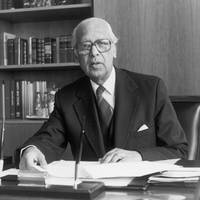
IMO Secretary-General Emeritus Dr. C.P. Srivastava, KCMG, Secretary-General Emeritus of the International Maritme Organization (IMO), has died in Italy, aged 93. IMO Secretary-General Koji Sekimizu expressed his sincere condolences to the Indian Government and Dr. C.P. Srivastava’s remaining family, and also the condolences of the entire IMO membership and staff. ”It is with great sadness that we have learned of the passing of Dr. C.P.
Exceptional Bravery at Sea: IMO 2013 Awards
The 2013 IMO Award for Exceptional Bravery at Sea will be awarded to two rescue swimmers from the United States of America, for saving the lives of 14 crew members from the tall ship HMS Bounty…
Norway First to Sign IMO Fishing Vessel Safety Protocol
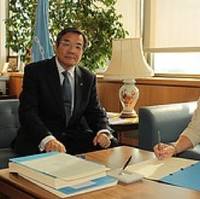
The Kingdom of Norway has become the first State to sign the Cape Town Agreement of 2012 on the Implementation of the Provisions of the 1993 Protocol relating to the Torremolinos International Convention for the Safety of Fishing Vessels, 1977. Ms. Ida Skard, Director General, Maritime Department, Ministry of Trade and Industry, Norway, signed the Agreement, at IMO Headquarters. The Cape Town Agreement of 2012 updates and amends a number of provisions of the Torremolinos Protocol.
ICAO, IMO and WCO Promote Supply Chain Security
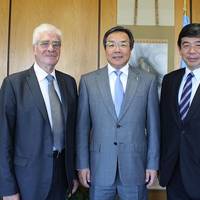
IMO Secretary-General Koji Sekimizu welcomed his counterparts, Raymond Benjamin, Secretary-General, ICAO, and Kunio Mikuriya, Secretary-General, WCO, to IMO Headquarters on Monday, July 8, where the three considered the further enhancement of collaboration between the Organizations in the fields of aviation, border and maritime security and facilitation. ICAO and the IMO perform their roles as specialized agencies of the United Nations, while the WCO is an independent intergovernmental body.
IMO Secretary-General Meets New IACS Chairman
IMO Secretary-General Koji Sekimizu met with the new Chairman of IACS, Roberto Cazzulo, Chairman of RINA Services. Mr. Sekimizu congratulated Mr. Cazzulo on his…
IMO Secretary–General Visits Apostleship of the Sea

On Thursday, July 4, IMO Secretary–General Mr. Koji Sekimizu joined Tilbury’s Apostleship of the Sea port chaplain, Deacon Paul Glock and National Director Martin Foley, for some ship visiting and to see first-hand the work of seafarers’ charity Apostleship of the Sea. Together they visited two container ships that were in the port that day. They spent time listening to the crew who shared their experiences of life at sea in the twenty-first century. Mr.
IMO Sec-Gen Reflects on Role of Modern Ship's Officer
IMO Secretary-General, International Maritime Organization Koji Sekimizu addressed staff and cadets on the golden jubilee of the Bangladesh Marine Academy. "In the…
IMO Mulls Postponement of Tier III Limits
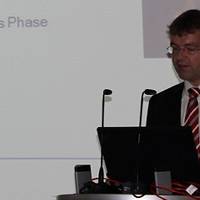
Germanischer Lloyd's traditional recap of the latest session of the Marine Environment Protection Committee (MEPC) of International Maritime Organization (IMO), focused on the surprising developments at the 65th session. MPEC 65, held in London in May, saw the IMO potentially postpone the introduction of the TIER III NOx limits contained in regulation 13 of MARPOL Annex VI, scheduled to come into effect in 2016, to 2021.
IMO Safety Symposium Proposes an Overhaul
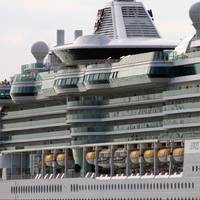
The recent IMO Symposium on the Future of Ship Safety recommends that the International Maritime Organization (IMO) carries out a full review of the existing regulatory regime, in order to meet future needs and expectations. consider undertaking a long-term comprehensive review of the existing safety regulatory framework with a view to ensuring that it will meet the future challenges associated with the application of new technologies…
New Zealand Ramps Up IMO Representation

Rt Hon Sir Lockwood Smith appointed New Zealand's first Permanent Representative at the International Maritime Organization (IMO). Sir Lockwood, New Zealand High Commissioner to the United Kingdom, recently presented his credentials to the IMO’s Secretary-General, Koji Sekimizu. The Director of Maritime New Zealand, Keith Manch, also participated in the first-ever Symposium on the 'Future of Ship Safety', held at IMO headquarters in London.
IMO Sec-Gen Reflects on Nor-Shipping 2013 Insights
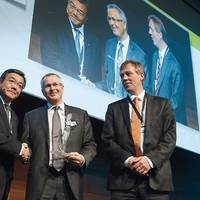
Mr. Koji Sekimizu says in his blog that it was fitting that Nor-Shipping's theme – 'Next generation shipping' – came in the year that IMO implemented EEDI & SEEM. "Shipping is still in an adjustment period. Shipping is a cyclical industry and we have seen a similar state of affairs in the 1970s, when the world encountered the oil crises in 1973 and 1978. In order to overcome the over tonnage, measures applied by the industry were ship lay-up, slow steaming, and eventually ship scrapping.
IMO Symposium on Future of Ship Safety
The IMO Symposium on the Future of Ship Safety will be held 10 & 11 June, 2013, at IMO Headquarters in London. The symposium will include six international panels…
Intertanko Applauds IMO Progress on Ballast Water Management
In line with the Intertanko-led joint proposal last year, the International Maritime Organization (IMO) has agreed to a rescheduling of the International Ballast…
IMO MEPC Implements Further Energy Efficiency
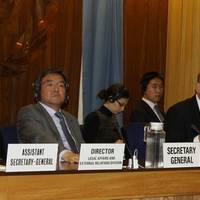
The Marine Environment Protection Committee (MEPC) of the International Maritime Organization (IMO) met for its 65th session from May 13-17 2013, at IMO Headquarters in London. The committee made significant progress in its work on further developing energy-efficiency regulations; adopted an MEPC resolution on rromotion of technical cooperation and transfer of technology relating to the improvement of energy efficiency of ships…
IMO to Shed Light on HME Disposal Confusion
Guidance circular to be issued for ships calling at ports without reception facilities for Harmful to the Marine Environment (HME) waste, including Hold Washing Water (HWW).
IMO Opens the Door to Reduce Shipping Emissions
Member states of the International Maritime Organisation (IMO) agreed on a Resolution on technology cooperation, which was delaying the implementation of standards…
Wärtsilä BWTS Receives IMO Final Approval
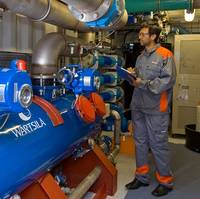
Wärtsilä has received the Final Approval status from the International Maritime Organization's (IMO) Marine Environment Protection Committee (MEPC) for its Wärtsilä Aquarius EC Ballast Water Management System. The approval was granted at the MEPC's 65th session held at the IMO headquarters in London on May 13, 2013. The Basic Approval had been granted in October 2012. The approval submission was taken…




